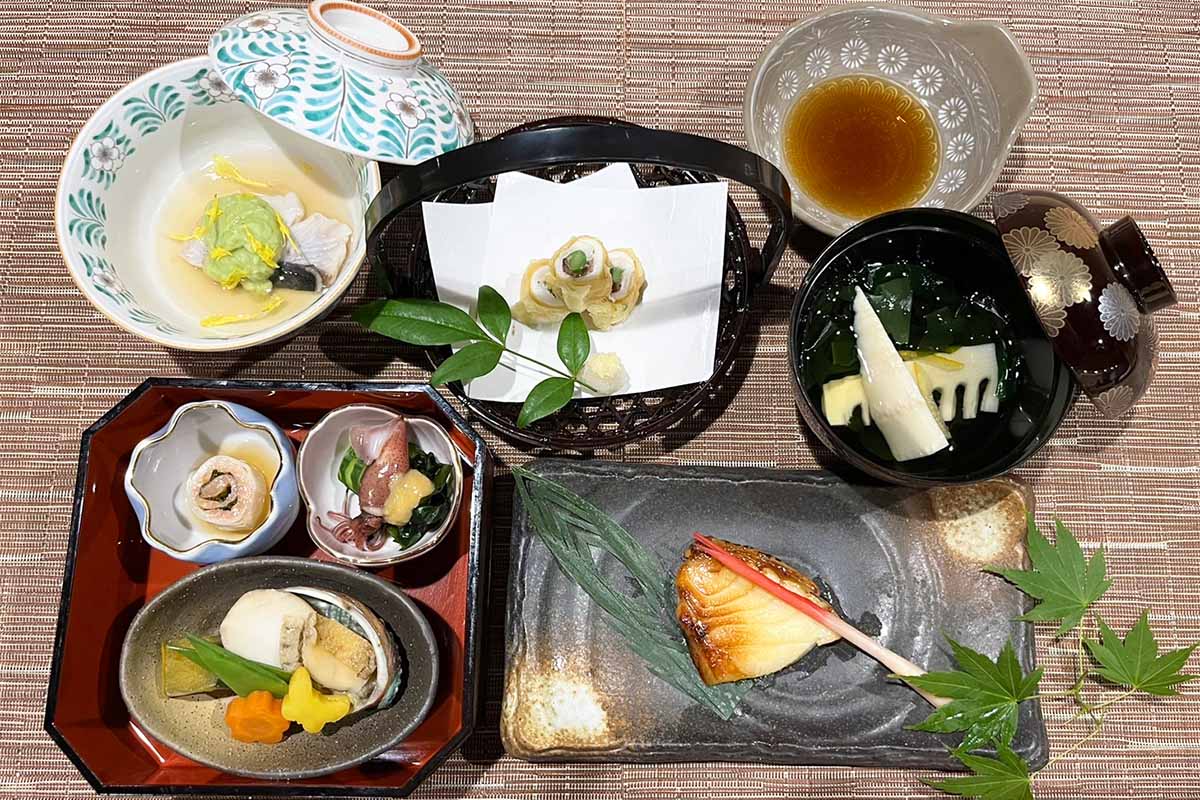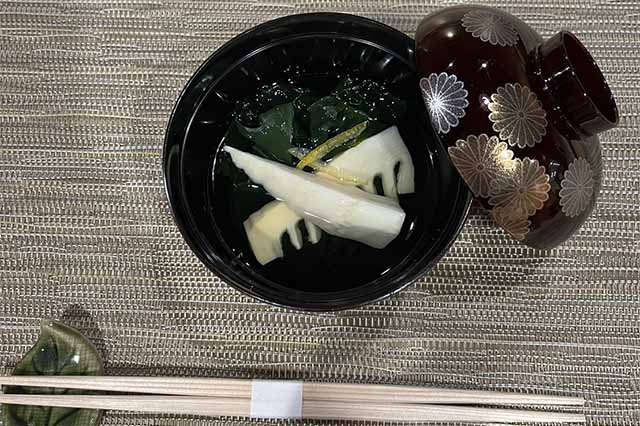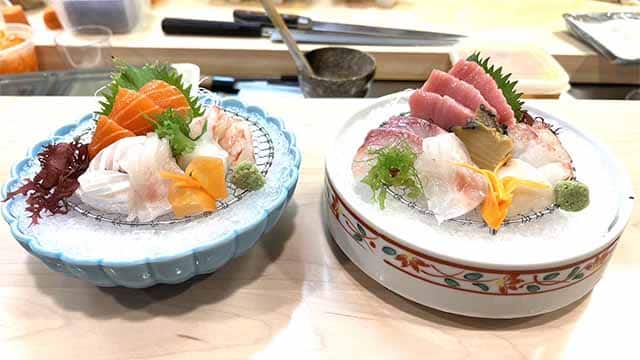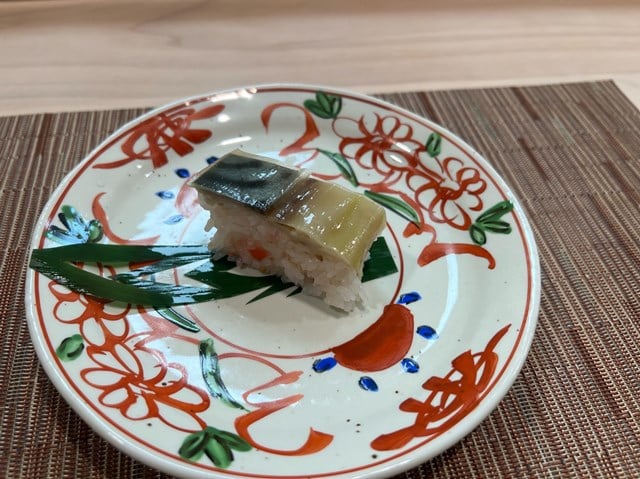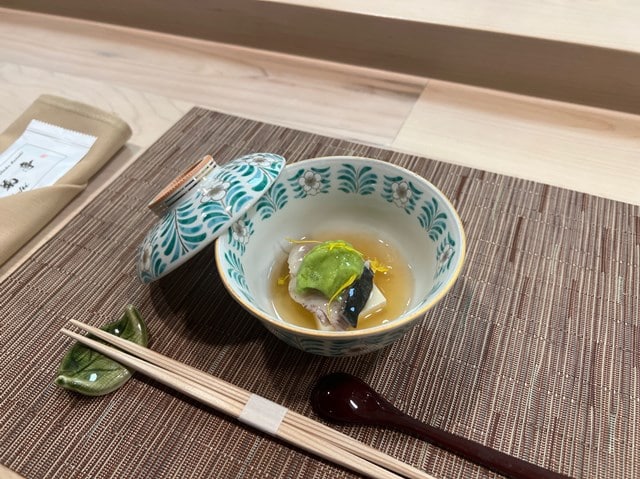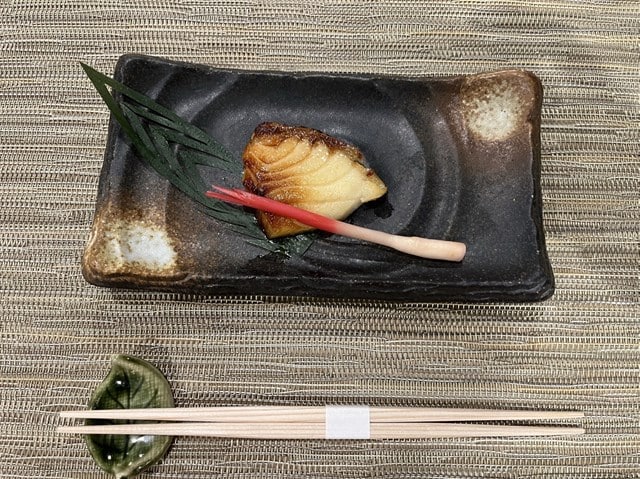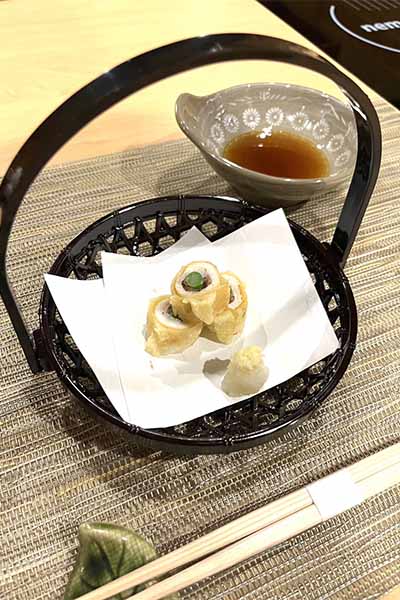Eigikutei announces the seasonally unique dishes in May 2023.
Our dishes vary by season. We choose the best ingredients in the season, and this May, we serve various dishes for every Kaiseki course.
We would like all customers to be satisfied with our chosen ingredients with our professional eye, and experience the best time in Eigikutei. Reserve now!
Eigikutei Kaiseki Course Dishes in May 2023
Takiawase
Includes: Boiled Pumpkin, Satoimo (Boiled Taro), Awabi(Seasoned Abalone), Sweet Potato, Carrot, and Asparagus
Asparagus season generally runs from late February to early June in the US. In May, asparagus get sweeter and tastier when they are just starting to appear. Fresh, in-season asparagus is beautiful to look at, with its dark color, luster, and firmness.
We cook and season each ingredient with our special dashi broth.
Wanmono
Includes: Wakame Seaweed and Bamboo Shoot (Takenoko)
Wakame seaweed is in season from February to May. Also, bamboo shoots are getting into season in May. We use these two freshly seasonal ingredients in the soup with our special dashi broth.
Otsukuri
Includes: Hon Maguro (Bluefin Tuna), Kanpachi (Greater Amberjack), and Sweet Shrimp
Although kanpachi’s season is from June to September, its taste is getting better and better from May.
In Hokkaido, Japan, sweet shrimp season is from March to May. You can enjoy tasting sweetness and flavor.
Oshinogi
Includes: Mackerel Battera Sushi (Saba Battera)
Battera sushi, also known as oshizushi, is a type of pressed sushi that originates from Osaka, Japan. It is made by pressing seasoned sushi rice and a layer of fish or other ingredients into a rectangular wooden mold, known as an oshibako, to form a block.
Battera sushi typically uses mackerel as the fish filling. It is known for its dense and chewy texture and the combination of vinegar-flavored sushi rice and savory fish flavors.
Mushimono
Includes: King Mackerel (Sawara), Fava Beans, Tofu, and Gin-an (Silver Bean Paste)
King mackerels are called “Sawara” in Japanese. It is written in “鰆” in Kanji character and “鰆” consists of fish and spring in Kanji. So, as the kanji character shows, sawara’s season is now, spring.
Fava beans are in season from April to June. It is used in Gin-an. As they lose freshness, the stringiness and pods turn brown. Select green pods that are bright and shiny, plump and full, firm to the touch, and heavy to the touch. Freshness is essential, so we choose the freshest beans possible and remove them from the pods just before cooking.
Gin-an is made with feva beans by mixing katakuriko (potato starch) and kuzuko (arrowroot starch) with bonito stock and water, then heating at a low temperature and simmering without coloration.
Yakimono
Includes: Chilean Sea Bass Saikyo-yaki (Grilled Chilean Sea Bass with Saikyo Miso)
In general, Chilean sea bass’s main fishing season may run from April to October. We get fresh fish locally and grill it with Saikyo Miso.
Saikyo Miso is coming from Kyoto, Japan, and has a long history to be developed. The color is white and the taste is sweet. Sakyo-yaki is one of the most popular grilled fish dishes in Japan.
Agemono
Includes: Tai (Red Snapper), Asparagus, and Yuba Tofu Skin, and Pickled Plum
Tai, red snappers, caught in the spring before spawning is called “Sakura Dai” meaning cherry blossom red snapper in Japanese. In spring, its entire body is tinged with cherry blossom color, making it highly nutritious. We fry a fresh red snapper keeping its taste, chewiness, and flavor.


